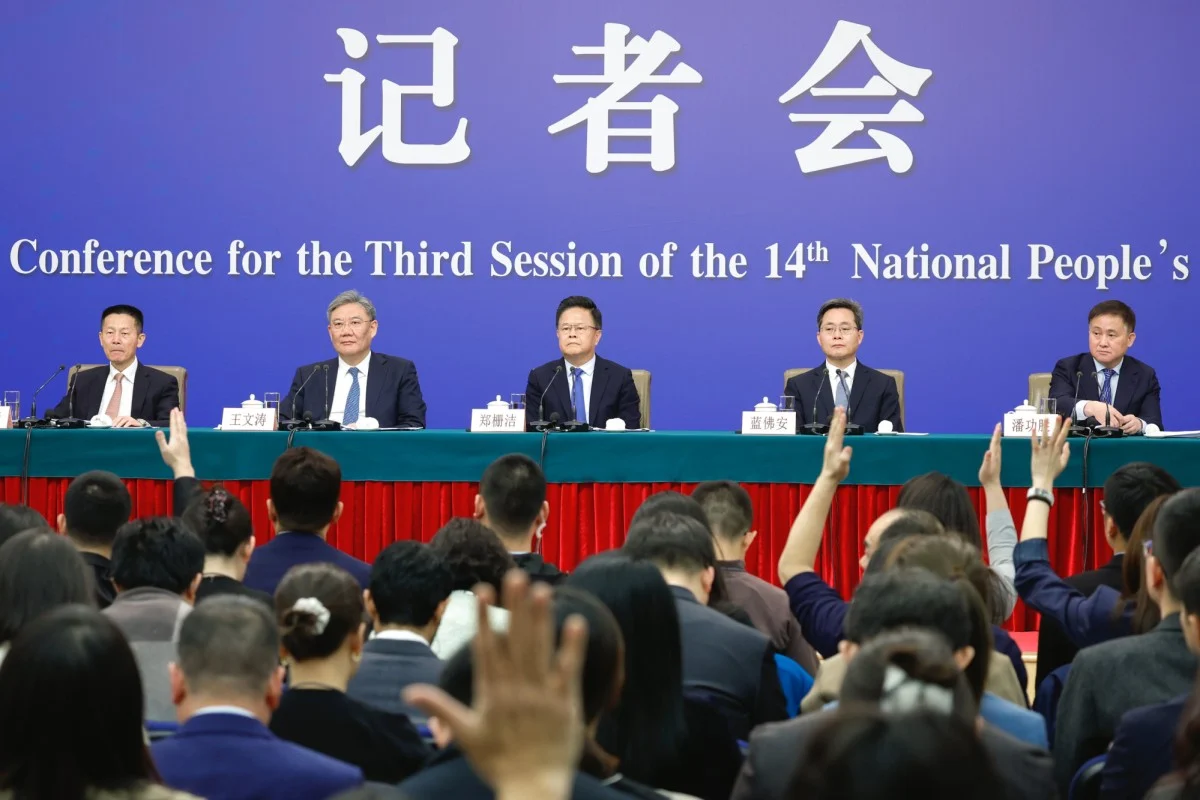China Reaffirms "Moderately Loose" Monetary Policy to Navigate Global Economic Headwinds
China Reaffirms "Moderately Loose" Monetary Policy to Navigate Global Economic Headwinds
By
David Goldfarb
Last updated:
April 11, 2025
First Published:
April 11, 2025

Source: South China Morning Post
Overview: China Signals Continued Policy Flexibility Amid Global Trade Uncertainty
As global trade tensions threaten to slow international economic growth, China is doubling down on its commitment to a "moderately loose" monetary policy. At a high-level regional summit in Malaysia this week, Xuan Changneng, Deputy Governor of the People’s Bank of China (PBOC), reiterated Beijing’s intention to maintain accommodative monetary conditions to support domestic financial markets and safeguard the ongoing economic recovery.
This reassurance comes amid rising volatility driven by an intensifying U.S.-China trade standoff, prompting nations across Asia to reassess economic strategies.
Trilateral Meeting Focuses on Financial Stability and Trade Impact
Xuan delivered his remarks during the ASEAN+3 Finance and Central Bank Deputies Meeting, held from Tuesday to Wednesday in Kota Kinabalu, Malaysia. The meeting brought together financial leaders from China, Japan, and South Korea, as well as officials from the Association of Southeast Asian Nations (ASEAN).
The group discussed regional resilience in light of the escalating trade conflict between the United States and China, which many fear could derail Asia’s fragile post-pandemic recovery.
“China remains committed to a prudent monetary policy that is flexible, targeted, and appropriately accommodative,” Xuan emphasized. “Our goal is to ensure the smooth functioning of financial markets and provide effective support for domestic demand and economic stability.”
Key Takeaways from China’s Monetary Policy Stance
- “Moderately loose” approach: This phrase, commonly used by the PBOC, suggests a monetary stance that supports liquidity while avoiding aggressive stimulus. It aims to balance inflation control with the need for economic growth.
- Support for financial market operations: China’s central bank is committed to maintaining liquidity in the banking system, preventing credit squeezes, and fostering a healthy environment for capital markets.
- Boosting consumer demand and SME financing: The PBOC will continue to roll out targeted lending programs, particularly for small and medium-sized enterprises (SMEs) and green industries, to stimulate domestic activity.
- Policy coordination with fiscal authorities: While the central bank steers monetary tools, it works closely with Beijing's Ministry of Finance to align fiscal spending, particularly infrastructure investment and local government debt control.
China's Recent Economic Indicators & Policy Tools in Focus
China’s GDP grew by 5.2% in 2024, slightly above the government’s target of around 5%. However, weak consumption, high youth unemployment (hovering above 14%), and property sector woes remain persistent challenges.
To address this, the PBOC has employed multiple instruments:
- Lowering the reserve requirement ratio (RRR) twice in the past year, injecting over ¥1.2 trillion ($165 billion) into the banking system.
- Targeted re-lending programs worth ¥500 billion aimed at green energy, innovation, and rural development.
- Maintaining the 1-year loan prime rate (LPR) at 3.45%, with room for further cuts depending on growth data.
Regional Cooperation: ASEAN+3 Eyes Trade Shock Buffers
Beyond domestic measures, the summit also stressed regional financial safety nets. Discussions included:
- Enhancing the Chiang Mai Initiative Multilateralization (CMIM) — a $240 billion regional currency swap arrangement designed to manage liquidity crises.
- Exploring a new Asian Bond Market Development Framework to reduce dependence on Western capital inflows.
- A commitment to shared data and early warning systems for trade disruptions and capital flight events.
Global Context: U.S. Trade Policy Still Causing Ripples
The backdrop of the meeting was dominated by recent moves from the United States, including an announcement of a 90-day delay on new tariffs—excluding China—and additional duties related to the fentanyl crisis. This has pushed China’s total effective tariff burden to 145%, severely impacting export competitiveness.
ASEAN officials expressed concern over the long-term impact on supply chains, regional manufacturing hubs, and currency volatility.
“The uncertainty generated by ongoing trade friction is forcing countries like ours to accelerate internal reforms and deepen financial cooperation,” said one South Korean delegate during a panel discussion.
What It Means for Global Investors
China’s reaffirmation of its policy stance sends a clear message: the central bank will stay nimble and proactive in its efforts to keep the world’s second-largest economy on track. For global investors, this translates into:
- Opportunities in Chinese equities, especially sectors benefiting from domestic stimulus (e.g., clean energy, fintech, advanced manufacturing).
- Continued yuan stability, as Beijing carefully manages the exchange rate amid capital outflow pressures.
- Increased demand for safe-haven assets across Asia if trade tensions escalate further.
Popular articles
Subscribe to unlock premium content
Gordie Howe Bridge: A $4.6B Gamble on North American Trade at Risk from Rising Tariffs

Why Designers Are Rethinking Pantone: The True Cost of Color Consistency in 2025

Point Roberts Faces Economic Collapse Amid U.S.-Canada Trade Tensions

Gordie Howe Bridge: A $4.6B Gamble on North American Trade at Risk from Rising Tariffs

Why Designers Are Rethinking Pantone: The True Cost of Color Consistency in 2025

Gordie Howe Bridge: A $4.6B Gamble on North American Trade at Risk from Rising Tariffs









